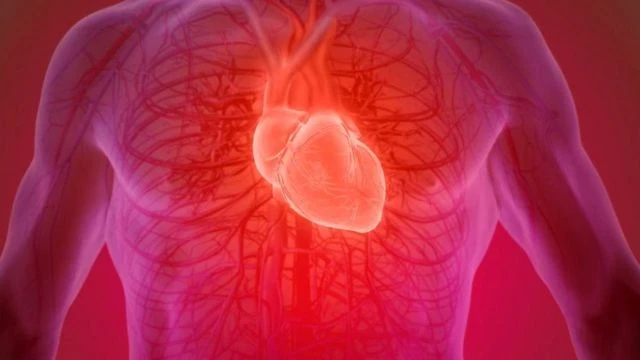Non-communicable diseases (NCDs) inflict an economic loss of 29.8 billion soms on the economy of...
A new study published in the British Journal of Sports Medicine debunks the myth that one must walk...

The mission also includes leading experts in public health, NCD prevention, and digitalization,...

A study has shown that older women who walked at least 4,000 steps one to two days a week had a...
In Uzbekistan, the first large-scale study of the human genome in the country's history has...

In the European Union, where alcohol consumption levels are among the highest in the world,...
On October 21, a multilateral dialogue on combating transport-related air pollution in the country...

In Uzbekistan, scientists from the Center for Advanced Technologies have conducted a comprehensive...

The Earth's Population This is the total number of people living on our planet. As of today,...

In Kyrgyzstan, a memorandum of cooperation was signed between the National Center for Cardiology...

Population of Kyrgyzstan Thanks to the fundamental changes that occurred in Kyrgyzstan after the...

An initiative to combat harmful products has been launched in Kyrgyzstan The Deputy Minister of...

It is expected that the discussion will involve deputies of the Jogorku Kenesh, Russian diplomats,...

On December 20, the Prime Minister of the Kyrgyz Republic, Joomart Otorbaev, held a working...

On March 13, a presentation of a photo exhibition dedicated to the 70th anniversary of the Great...

On March 13, a presentation of the collective monograph "Archaeological Sites on the Kyrgyz...

Military personnel of the Russian airbase CSTO 'Kant' participated in the unveiling of...

According to the Education Department of the city administration, an award ceremony for the...

On September 25, 2014, a round table was held in Bishkek on the topic “Improving access and...

On May 13, a presentation of the long-term regional target program to assist the voluntary...

Recently, at the "Ak-Keme" hotel, the Ministry of Health of the Kyrgyz Republic and the...

No matter how interesting the composition and properties of water manifestations may be, it is...
On October 21, a multilateral dialogue was held in Bishkek dedicated to issues related to combating...

A presentation of the "EXPO-2017" International Specialized Exhibition was held at the...

Resource Center for the Elderly On October 1, 2019, a Nordic walking event with the participation...

Population of Kyrgyzstan in 2019 In 2019, the population of Kyrgyzstan will increase by 104,931...

The head of the tourism department reported on the results of domestic entrepreneurs'...

On the eve, a traditional Republican autumn athletics cross-country event took place in the...
According to IQAir data, as of October 22, 2025, at 16:00, the air quality index in Bishkek is...

Experts propose organizing tourist gold mining in Kyrgyzstan. This idea was voiced today during a...

On April 16, 2014, a press conference was held at the "Kabar" news agency regarding the...

In 14 years, the number of people in Kyrgyzstan whose weight significantly exceeds the norm has...
At the cemetery in Osh, the funerals of six individuals who became victims of a recent fire on...

International organization stands up for elderly doctors in Kyrgyzstan The international network...

More than 100 girls will participate in the final of the "Beauty of Kyrgyzstan-2015"...

For two days, specialists in the field of the Russian language and its teaching from Lomonosov...

On March 13, a presentation of the encyclopedia "Alykul Osmonov" took place at the...

On May 14, the international agro-industrial exhibition 'Aiyl-Agro 2014' began in...
In 2024, 1 million 674 thousand 85 vehicles were registered in Kyrgyzstan, among which 83% (1...

THE DEPARTMENT OF TOURISM UNDER THE MINISTRY OF CULTURE, INFORMATION AND TOURISM OF THE KR,...
In Kyrgyzstan, work is underway to analyze the progress of the project "Sustainable...

Celebrations dedicated to the 70th anniversary of Victory over fascism in the Great Patriotic War...

MATERIALS FOR THE REPORT OF THE KYRGYZ REGIONAL COMMITTEE OF THE VKP(b) AT THE VI REGIONAL PARTY...

The presentation of the first Islamic magazine UMMA in Kyrgyzstan will take place in Bishkek on...
As of 10:00 AM on October 22, 2025, the air pollution level in Bishkek is rated at [b]119...

On April 4 of this year, the Second Meeting of the Working Group of the Turkic Council on the...

The International Business Council has developed a vision for the development of the Kyrgyz...

National Statistical Committee: Female Population Predominates in Cities of Kyrgyzstan, While Male...